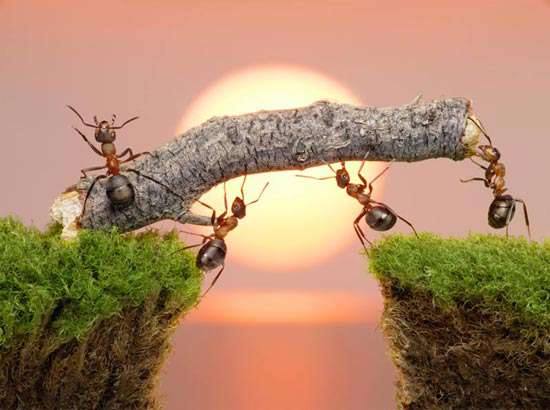In a time of global pandemics and social distancing, true human connection is hard to come by. While we stay at home, avoiding bars and clubs, Facebook role-playing groups have become a keystone in social interaction, providing us with ample distraction from the troubling world around us. The groups begin with a simple concept, a premise which everyone must follow. It may be that it’s the year 1453, that everyone is a middle-aged dad, or that everyone must speak gibberish and pretend to understand each other (that one is a personal favourite).
The most popular of these groups is undoubtedly “A group where we all pretend to be ants in an ant colony”, which has now amassed almost 2 million members. Originating on Facebook in June 2019, the group gained significant momentum at the height of the COVID-19 pandemic in March and April, reaching 1.6 million members in May. It is now so popular that the group recently released its own ant-dedicated merch line, with profits going to a conservation organisation. Ant-related content floods the page, attracting hundreds of thousands of comments and likes on a daily basis.
Following the success of this group, both old and new groups have been gaining members rapidly. While some groups seek to evoke a sense of nostalgia for childhood, encouraging members to pretend it’s 2007 again, others seek to encourage a particular type of communication, such as “a group where you can only communicate in auto-complete” or “a group where we only talk like Raymond Holt”. The majority, however, are built on pure stupidity, where people can only say “egg”, everyone gives you terrible advice, or everyone pretends to be pieces of bread.
Upon entering the strange world of the role-playing Facebook group, one’s first reaction is to ask “‘why?”’. While it may seem ludicrous that adults are spending their time pretending to be ants on the Internet, these groups provide an innovative and safe environment to interact with other members, make connections with like-minded people, and have some good old-fashioned fun.
The development of these online communities reflects the greater shift towards online communication and interaction that we have become accustomed to in a time of COVID-19. In contrast to how we might usually interact on Facebook, with only those who we know personally appearing on our feed, these groups make your feed much more unpredictable. Content from strangers appears frequently, almost mirroring the everyday ambiguous and interesting interactions that you would receive in a pre-COVID era.
Built into these groups are a high level of moderation and extensive rules, reminding their members that even though they are hidden behind a screen, anything that wouldn’t be acceptable in real-life interaction would not be acceptable in the groups either. Hate speech and highly politicised materials are removed as well. These rules provide a judgment-free zone to be silly and fantastical while being yourself, without the need to hide behind an avatar or a persona, like in most role-playing games.
All in all, teamwork, a collective desire for escapism, and a sprinkle of childlike delight holds this little corner of the Internet together. Whether it’s the wild fantasy of being an ant in an ant colony or the nostalgia for the 2000s, the rise of the role-playing Facebook group is sure to provide all with their fair share of satirical humour and reinsert a sense of unpredictability back into their lives.
As the world continues to ease back into face-to-face interactions and the seats at the bar slowly fill up, it is possible that these groups will begin to dissolve. In the future, perhaps they will be remembered as a part of the greater migration of interaction and community from the in-person to the virtual, alongside Zoom, Microsoft Teams, and Tiktok. But while they are still fulfilling and abundant communities, they are reminders that we are all going through a shared experience of hardship and isolation.





